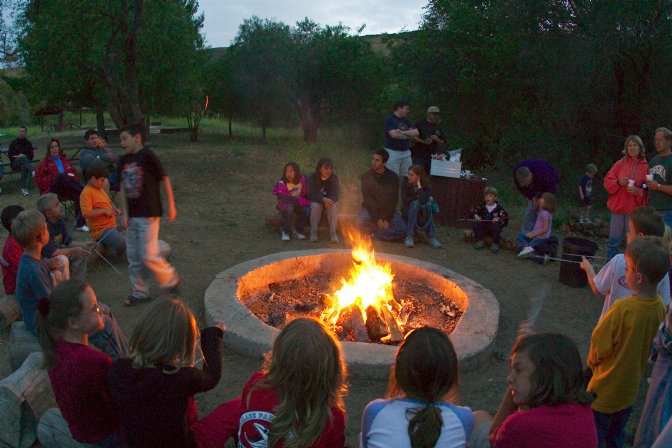So, I'm about to stomp on someone's sacred toes, and if you feel I'm about to stomp on yours, pull on your steel-toed boots.
I disagree with the following illogical argument:
Well, the Twilight Saga may not be the best written series, it may even have its flaws, but at least it's getting kids to read.Hmmm--really?
Let's restate this bit of daft logic another way:
Well, Hustler magazine may be pornographic and degrading to women, but it's getting young males interested in photography and female anatomy.These two statements are prime examples of the "I Give Up Trying and Will Just Let the Kids and Popular Media Decide for Themselves because It's Really too Hard to Be a Parent and an Adult because the Kids May Think I'm not Cool" New Age / Modernistic Philosophy.
 Giving in to the false conclusion that popular bad literature is fine as long as it gets kids to read is like saying that Twinkies and Happy Meals are acceptable children's diet because they get kids to eat.
Giving in to the false conclusion that popular bad literature is fine as long as it gets kids to read is like saying that Twinkies and Happy Meals are acceptable children's diet because they get kids to eat.Twinkies and Happy Meals are not gateway foods to Healthy Cuisine any more than the Twilight Saga is a gateway series to Of Human Bondage or Beowulf or The Art of War.
A kid whose diet consists of junk food like Twinkies and Happy Meals will seek out other junk foods.
In the same vein (and, yes, the pun is intended), kids whose reading fare consists of prose doggerel like the Twilight Saga will seek out other junk writing.

Twilight is little more than a 1960s romance comic + Dark Shadows vampire soap opera.
I first broached this idea on my Facebook page, and I got a response that perhaps the Twilight Saga was encouraging kids to write.
Well, yes, that's true, too.
Absolutely nothing wrong with imitation--highest form of flattery--even Shakespeare took ideas and motifs from other writers--even very, very bad writers.
I, too, imitated my favorite writers when I was a child and young teen and began writing stories that imitated their tales--Poe, Hawthorne, Crane, Shakespeare, Maugham, Cooper, et cetera.
 And I got the bulk of my ideas from Classics Illustrated comic books--yes, I read the comics' version of the great writers when I was quite young. This series led me directly to reading the complete classic works themselves when I was older.
And I got the bulk of my ideas from Classics Illustrated comic books--yes, I read the comics' version of the great writers when I was quite young. This series led me directly to reading the complete classic works themselves when I was older. When a student talks to me about what he/she is reading and it's junk-food lit like the Twilight Saga, I don't chide or discourage him/her from his/her choice.
Rather, I try my best over a period of time and through discussion of literature to guide him/her in a better direction by suggesting writers such as Cynthia Leitich Smith, Laurie Halse Anderson, Neil Gaimon, Robert Newton Peck, et al.
 And I've been successful in a few cases. Kids have actually come up to me and said, "You know, Mr. G, I don't know why everybody likes Twilight. I just read Eternal, and it's great!"
And I've been successful in a few cases. Kids have actually come up to me and said, "You know, Mr. G, I don't know why everybody likes Twilight. I just read Eternal, and it's great!"God bless Stephanie for her success.
However, don't equate pop culture fandom with the bridge to bigger and better works of literature.
Let's accept the Twilight Saga and other pop culture junk-food lit for what it is and guide kids to the better writers and stories out there.
After all, a Twinkie or a Happy Meal every now and then won't kill anyone, but a steady diet is not good.
And a steady diet of doggerel prose will create a generation of intellectually diabetic, right-brained obese, and spiritually malnourished readers who don't know any better.
See you on the bookshelves.
Larry Mike
PS: Do you remember when Stephen King called his books the Big Mac and fries of literature? At the time, he thought he was just making a cool statement about his popularity, but he has regretted making the statement as it actually equated his good work to junk food.
 I had written to ask her if she would participate in an online conversation/interview with our newly formed Shortgrass Children & Young Adults Writers group and also to tell her about my latest project,
I had written to ask her if she would participate in an online conversation/interview with our newly formed Shortgrass Children & Young Adults Writers group and also to tell her about my latest project,  As Cynthia so aptly and soothingly put it, it's what the story-teller brings to the campfire that's sets his/her story apart from the other, not the parts of the story.
As Cynthia so aptly and soothingly put it, it's what the story-teller brings to the campfire that's sets his/her story apart from the other, not the parts of the story.